Accepted Scientific Name: Sempervivum cv. Oddity McPherson
Hybridizer: Sandy McPherson 1977(1978 Bronze Rosette Award for best new variety.)
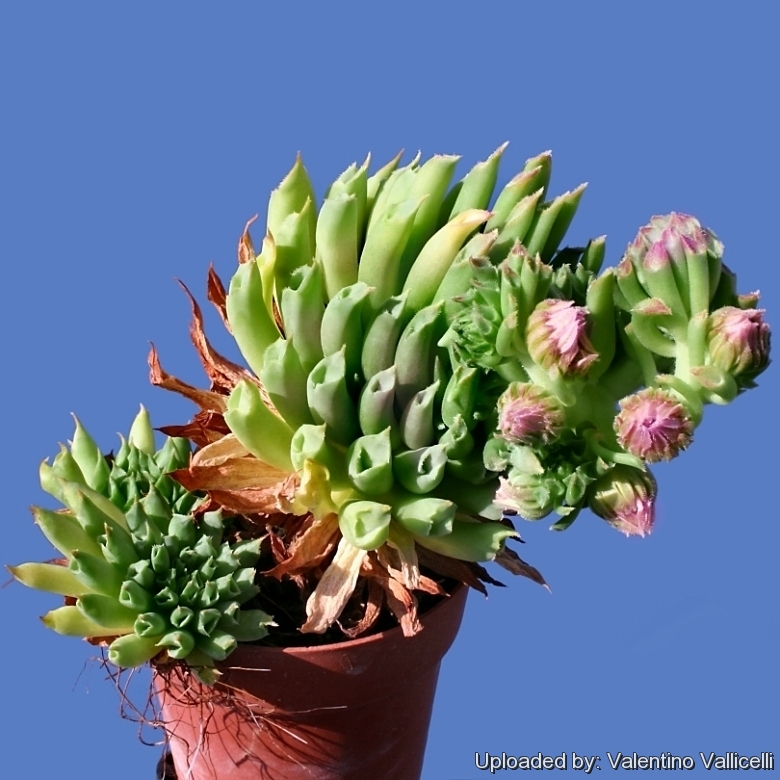
Sempervivum tectorum cv. Oddity (Sempervivum cv. Oddity) Photo by: Valentino Vallicelli
Origin and Habitat: Garden origin (It was developed by American succulent enthusiast Sandy McPherson and it was introduced to gardeners in 1977, and won the 1978 Bronze Rosette Award for best new variety. )
Synonyms:
Common Names include:
ENGLISH: Trumpeter, Hens & Chicks, Cobweb Houseleek
Description: Oddity is an evergreen rosette succulent with a mat forming growth habit with densely clustered leaves. Differently to the leaves of most sempervivums (That are broad and pointed) the ones of 'oddity' are folded lengthwise and backwards so that they look like green cigarette papers. Also very reminiscent of Crassula ovataSN|18609]]SN|18609]] cv. 'Gollum' (syn. Crassula ovataSN|18609]]SN|18609]] cv. 'Hobbit'). 'Oddity' is relatively rapid growing cultivar that forms little clumps that continues to spread. This cultivar occasionally has a tendency to mutate with completely flat leaves.
Rosettes: Each rosette can be quite large and may have up to 50-60 leaves.
Leaves: Thick, pointed, with bristly margins, lime green tipped with crimson and characteristically curl up to form tight rolls .
Flowers: Pink. Star-shaped, held in flat cymes on the terminal ends of hairy, upright stems.
Blooming season: Around June through August. The rosettes can take several yeas to bloom and once they bloomed dies after setting seeds, but are replaced by new rosettes on lateral runners.
Notes: It has occasionally been called "Trumpeter" as though each pipe was a whistle.
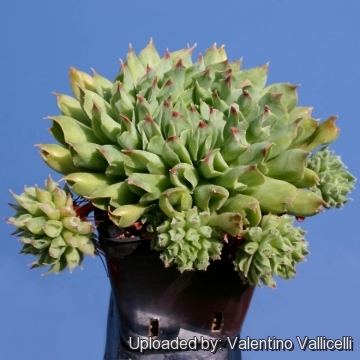 Sempervivum tectorum cv. Oddity (Sempervivum cv. Oddity) Photo by: Valentino Vallicelli
Sempervivum tectorum cv. Oddity (Sempervivum cv. Oddity) Photo by: Valentino Vallicelli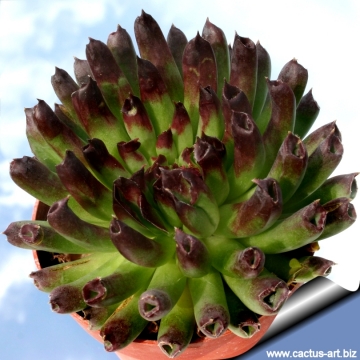 Sempervivum tectorum cv. Oddity (Sempervivum cv. Oddity) Photo by: Cactus Art
Sempervivum tectorum cv. Oddity (Sempervivum cv. Oddity) Photo by: Cactus Art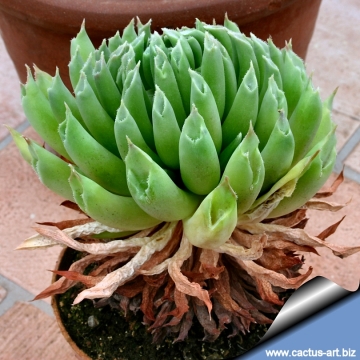 Sempervivum tectorum cv. Oddity (Sempervivum cv. Oddity) Photo by: Cactus Art
Sempervivum tectorum cv. Oddity (Sempervivum cv. Oddity) Photo by: Cactus Art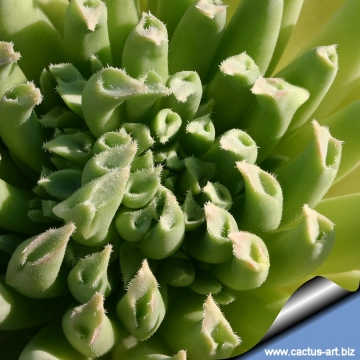 Sempervivum tectorum cv. Oddity (Sempervivum cv. Oddity) Photo by: Cactus Art
Sempervivum tectorum cv. Oddity (Sempervivum cv. Oddity) Photo by: Cactus Art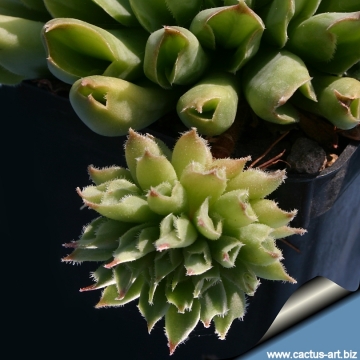 Sempervivum tectorum cv. Oddity (Sempervivum cv. Oddity) Photo by: Cactus Art
Sempervivum tectorum cv. Oddity (Sempervivum cv. Oddity) Photo by: Cactus Art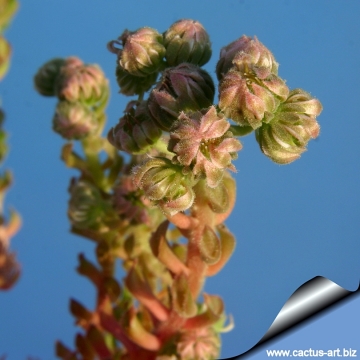 Sempervivum tectorum cv. Oddity (Sempervivum cv. Oddity) Photo by: Cactus Art
Sempervivum tectorum cv. Oddity (Sempervivum cv. Oddity) Photo by: Cactus Art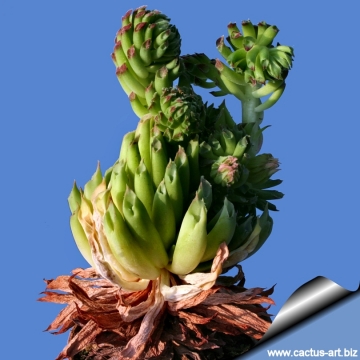 Sempervivum tectorum cv. Oddity (Sempervivum cv. Oddity) Photo by: Cactus Art
Sempervivum tectorum cv. Oddity (Sempervivum cv. Oddity) Photo by: Cactus ArtSend a photo of this plant.The gallery now contains thousands of pictures, however it is possible to do even more. We are, of course, seeking photos of species not yet shown in the gallery but not only that, we are also looking for better pictures than those already present.
Read More... Cultivation and Propagation: In Europe, the plants are sometimes used in roofing, with the plants grown in between roofing tiles; they are believed to ward off lightening.
Cutlivation: These succulents are are from Europe and are very cold hardy and easy to grow. Frost Tolerance: Hardy at least to -12°C (or less). It makes a wonderful ground cover. Good in rock, alpine or desert scape gardens they are also used in concrete planters on either side of the front entry. Great in window boxes or niches. Grows and spreads in poor soil with little water & could rot if watered too often. It enjoy full sun , though in warmer climates it needs protection from too much sun because it is not very heat tolerant. However it is quite adaptable and the little clumps can spread slowly also with a bit more dampness and shade, so it not suffer in that location after all. During the growing season, the plants are watered and allowed to dry slightly before watering again. Although they can take a great deal of drought, they seem to do better with regular (but moderated) watering. During the winter months, plants are watered very little. Outdoors it does not prefer rich loamy soil; gritty dirt with pea gravel suits it. Excess moisture can damage the plant in winter and it will benefit from being brought into the shelter of the greenhouse or cold frame.
Propagation: Is very easily propagated by division of larger clumps or by offsets, just break off a piece and transplant.


















